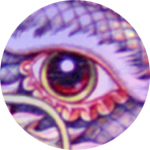Earlier in the discussion much was made of the placebo affect and the common notion that 1/3 of placebo control groups get better. This affect is often attributed to the amazing healing power of the mind, etc.
However, recent studies have shown that in fact that notion is a myth.
http://hideinplainwebsite.com/Placebodoc.htm
From the above linked New York Times article
"The investigators analyzed 114 published studies involving about 7,500 patients with 40 different conditions. The report found no support for the common notion that, in general, about a third of patients will improve if they are given a dummy pill and told it is real."
On another point, much has been made of discussion styles. When sections of the discussions are rightly labelled "red herring," etc. the response seems to be a discounting of the very real observations. Does this advance the discussion? It seems as if folks are dismissing a real POV instead of engaging it. In other words, isn't it hypocritical to write someone else's opinion off as hopelessly mired in logic, science, and "western" constraints while standing on similarly mired "eastern" ground?
I see that many people believe this works. Maybe it does. If it does, it seems clear that it works for reasons other than those currently stated. For example, in another thread this article:
http://www.skeptics.com.au/journal/acufacts.htm
gives a pretty good outline of the history of one aspect of TCM and its transportation abroad. When one realizes that current understandings of the practices are not connected to the "T" of Traditions at all, the stance is weakened.
Be that as it may, when faced with new information, one cannot simply write it off. Either one's assumptions are wrong or reality is. So far, no one has unduly suffered from examining their assumptions....
CT



 Reply With Quote
Reply With Quote




